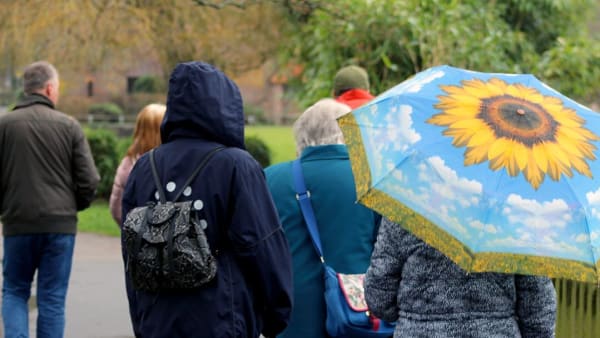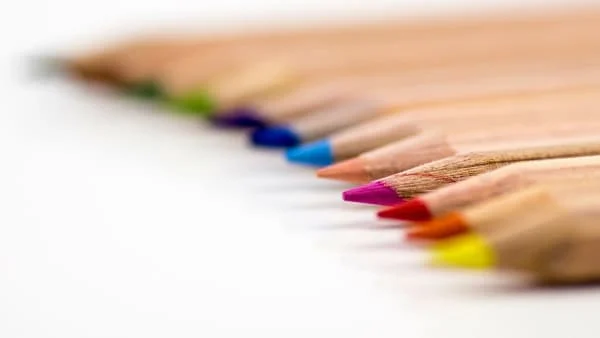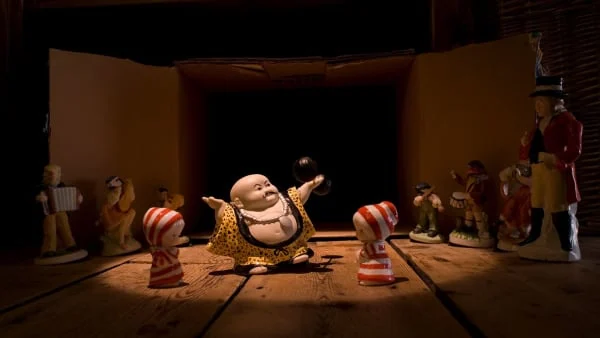OASIS (Art for the socially isolated scheme) review
The OASIS pilot project was a partnership between two charities: Paintings in Hospitals and Sue Ryder.
Paintings in Hospitals (PiH) ‘aims to transform the UK’s health by using world-class art to inspire better health and wellbeing for patients, carers, and communities.’ Fundamentally, they believe ‘art makes lives better.’ Sue Ryder is a British palliative, neurological and bereavement charity that supports ‘people through the most difficult time of their lives’. Sue Ryder also provides support for remote day patients who can live independently and receive care within their home. Art is beneficial in the promotion of health and wellbeing and there is growing evidence of its positive impact on social isolation and loneliness, life-affecting physical and mental health conditions, trauma, etc. Studies have highlighted the prominence of anxiety and depression among people experiencing life-limiting conditions.
The OASIS pilot project aimed to enrich the lives of people with life-limiting conditions through art and creative engagement, in a unique partnership between Paintings in Hospitals & Sue Ryder. It involved pairing befriending volunteers with remote day patients (participants) and was designed to be delivered within participants’ homes. Participants were invited to view artworks digitally and to make an art response using a range of materials. Volunteers introduced the artworks, facilitated engagement, discussions, and artmaking.
Its objectives included:
– enhancing participants’ quality of life through supporting their creativity.
– facilitating personal reflective and expressive discussions that may not be happening at this stage of life.
– alleviating feelings of isolation and loneliness through the support of befriending volunteers.
Feedback gathered in evaluation forms and in discussions with participants and volunteers was overwhelmingly positive and ratings showed that:
– the home-delivered sessions were accessible, enjoyable, and worthwhile.
– participants enjoyed the art-viewing and artmaking, and learning new things about art.
– participants had found the befriending volunteers helpful.
– participants would recommend the sessions to friends and family.
Importantly, participants also reported that the sessions had improved their mood & feelings at the time. Participants were facing some existential issues potentially affecting them deeply emotionally. Engagement in the process gave them some space to take their minds off this, and although this was temporary, it provided a welcome relief: ‘Doing something different, gave me a chance to concentrate and try something new. Time flew by and conversation flowed easily whilst we were working.’
Their engagement in the process was evidenced by their creative outputs (see selection of artworks below) which extended the art viewing process and encouraged them to explore and experiment with a wide range of art materials.
Befriending volunteers also enjoyed delivering the sessions and found that these also impacted their own connection with creativity. As this was a new approach, a process of learning together seemed to benefit participants and volunteers: ‘I was nervous about the project not really knowing what to expect. However, I and the Sue Ryder volunteer learnt together.’ (participant).
The volunteers’ perception of the impact of the sessions on participants’ moods and feelings also echoed the latter’s ratings: ‘Lots of reminiscing and discussion during the session. A real sense of calmness whilst we were doing the activity in contrast to her (participant’s) busy week of doctor’s appointments, etc.’ (befriending volunteer).
Read the full report here:
OASIS (Art for the socially isolated scheme) review
The OASIS pilot project aimed to improve the lives of people with life-limiting conditions through art and creative engagement. It paired befriending volunteers with remote day patients, providing art activities and discussions. Feedback was overwhelmingly positive, showing that the sessions were enjoyable and worthwhile, improving participants' moods and feelings.

Art Meets Book Evaluation
The ‘Art meets books’ project is a partnership between Paintings in Hospitals (PiH) and public libraries in four communities in London (Eltham and Woolwich) and the West Midlands (Dudley and Gornal). Libraries play an important role in building networks and supporting socio-economically disadvantaged communities. These reports evaluate participants' experiences with the project and its potential benefits.
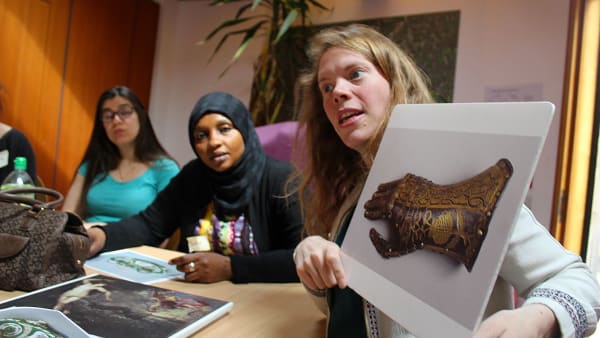
Contemporary Art in Primary Care
Paintings in Hospitals partnered with the Wallace Collection to better understand the effects of contemporary art in primary care sites...
Art and Work-Related Stress
Paintings in Hospitals worked with Val Huet, British Association of Art Therapists, to research the impact of visual art on work-related stress...
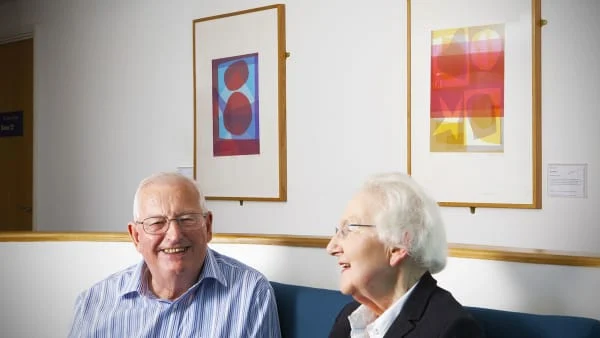
Art and Older People
Paintings in Hospitals embarked on a pilot project to understand and remove barriers for older people unable to experience art and culture...
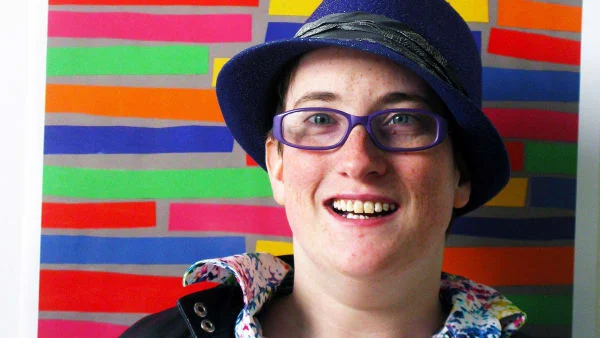
Art and Autism
Paintings in Hospitals collaborated with the Helen Hamlyn Centre for Design at the Royal College of Art on a study exploring the artwork preferences of people on the autistic spectrum...
Art and Young People
Paintings in Hospitals worked with Tate Youth Forum to develop new guidelines and commission artworks for younger people in care...
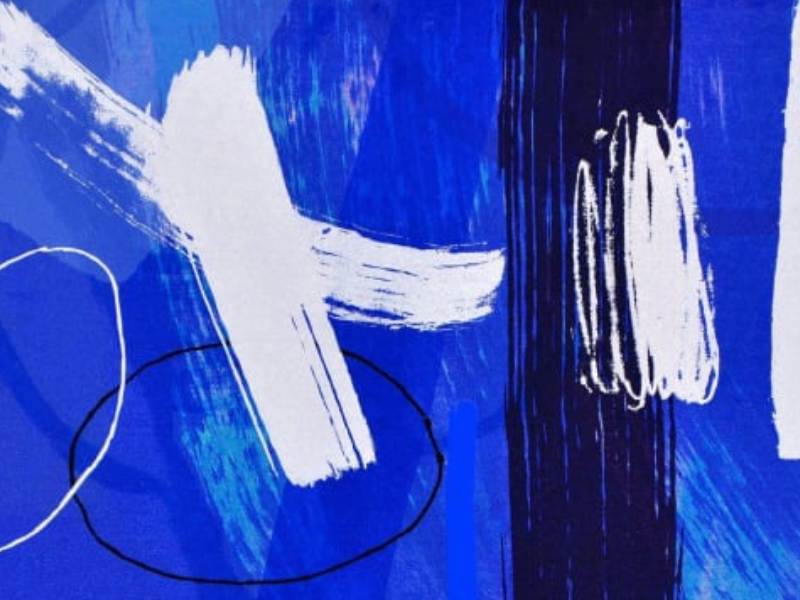
About our collection
Our art collection is the only national arts in health collection. Over 2,000 artists are represented, including Bridget Riley, Antony Gormley, Andy Warhol, Anish Kapoor, Maggi Hambling, and many more.
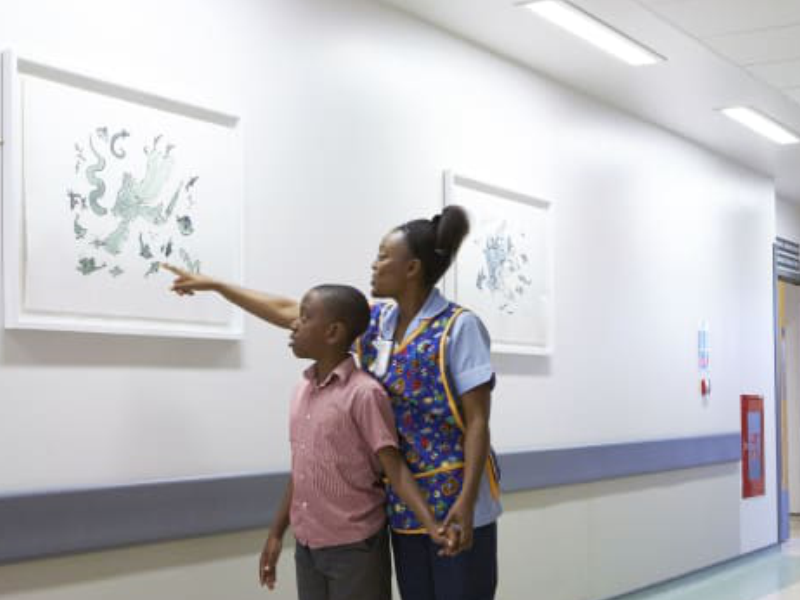
Borrow our artworks
Our art collection is the only national arts in health collection. Over 2,000 artists are represented, including Bridget Riley, Antony Gormley, Andy Warhol, Anish Kapoor, Maggi Hambling, and many more.

Our shop
Our art collection is the only national arts in health collection. Over 2,000 artists are represented, including Bridget Riley, Antony Gormley, Andy Warhol, Anish Kapoor, Maggi Hambling, and many more.
